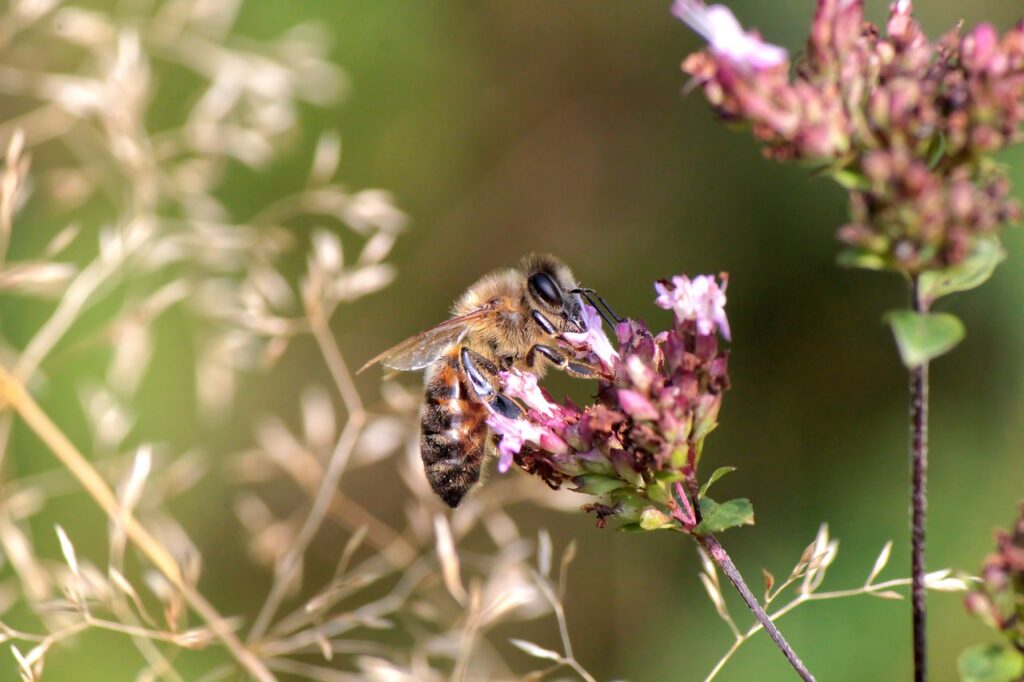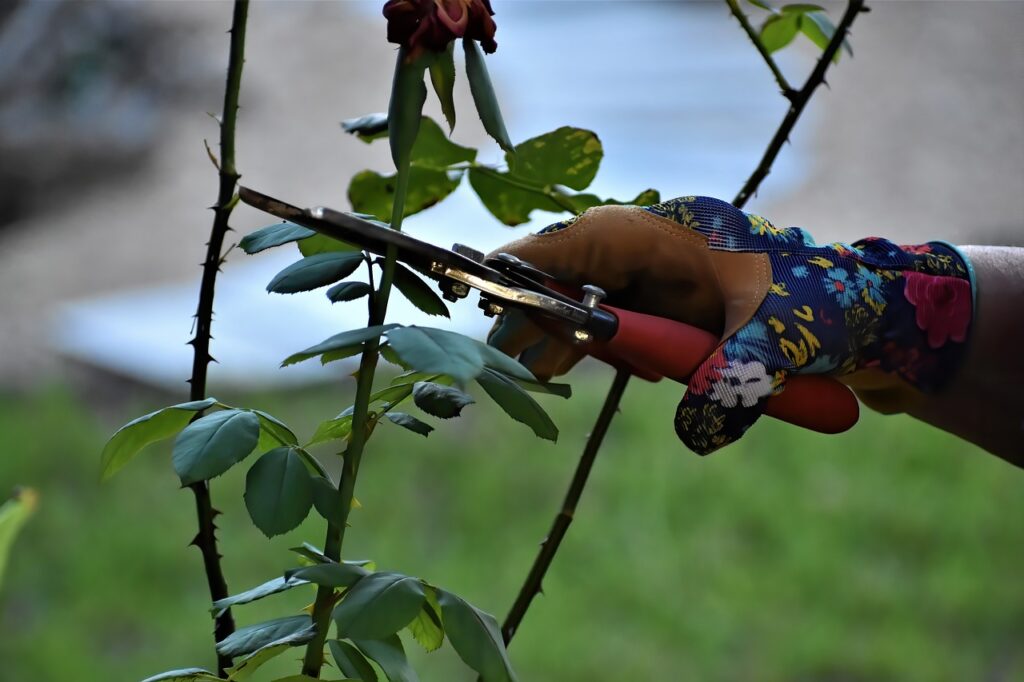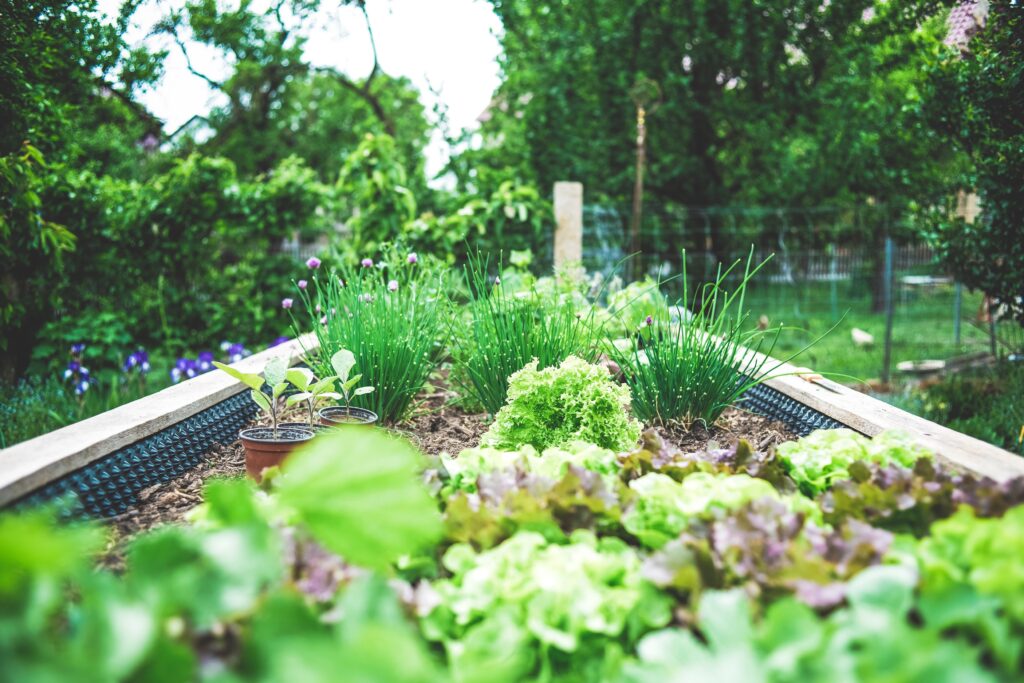Gardening can be a rewarding and therapeutic hobby, but dealing with garden pests can be frustrating and disheartening. These unwanted visitors can wreak havoc on your beloved plants, causing damage, and sometimes even wiping out entire crops. However, there are effective and environmentally friendly ways to deal with these pests. In this article, we will explore common garden pests and learn how to naturally control them without resorting to harmful chemicals.
Understanding Common Garden Pests
Garden pests are organisms that cause harm to plants, hindering their growth and development. These pests can vary from tiny insects to larger rodents and can include harmful plant diseases as well. Understanding these pests is crucial in devising the best strategy to combat them and protect your garden.
Definition of Garden Pests
Garden pests encompass a wide range of organisms, including insects like aphids, caterpillars, and beetles, as well as rodents like rats and mice. Plant diseases, such as powdery mildew and blight, are also considered garden pests as they infect and weaken plants.
Why They Are a Problem
Garden pests are a problem because they feed on plants, causing damage to leaves, stems, roots, and fruits. This feeding behavior weakens the plants, making them more susceptible to diseases and reducing their overall productivity. If left unchecked, these pests can lead to significant losses in a garden.
Identifying Common Garden Pests
Before you can effectively control garden pests, you need to be able to identify them. Knowing the enemy is the first step in devising an appropriate defense strategy.
Common Insects
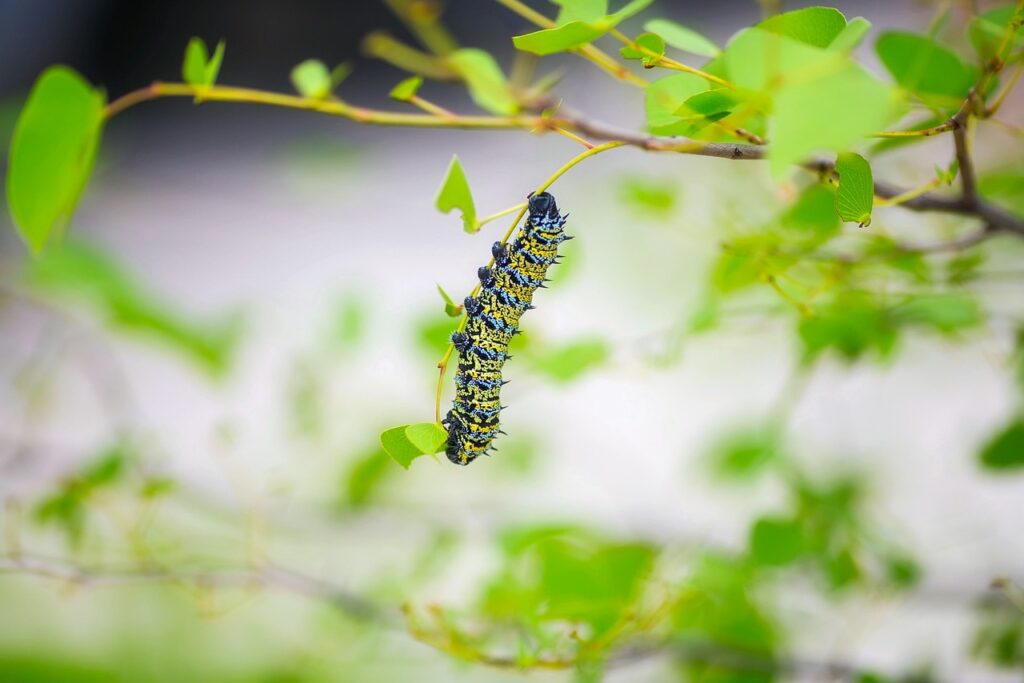
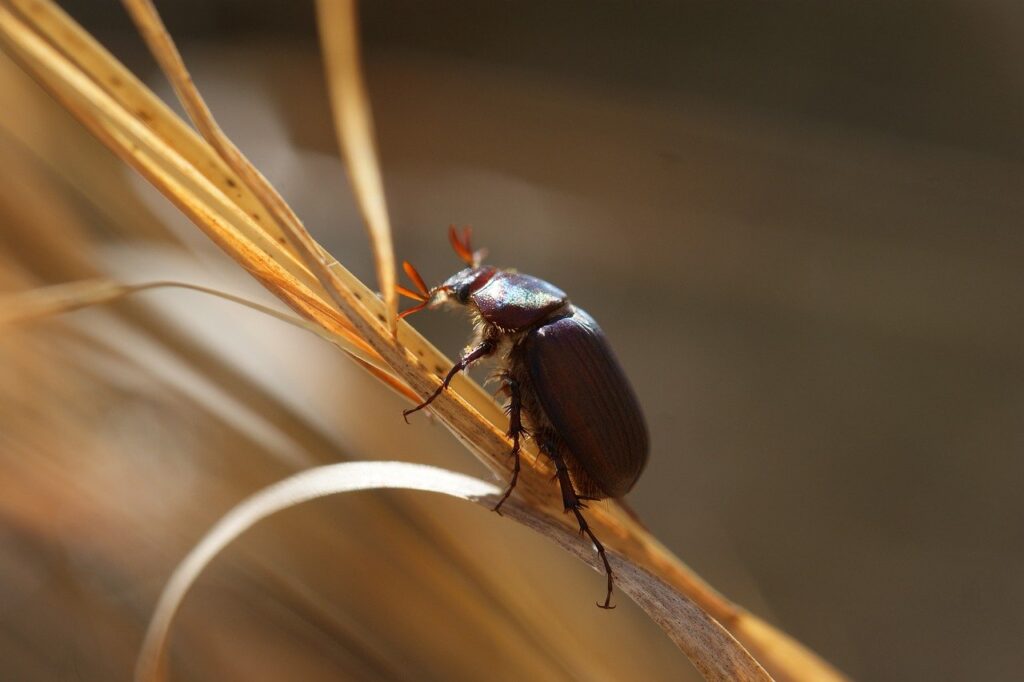
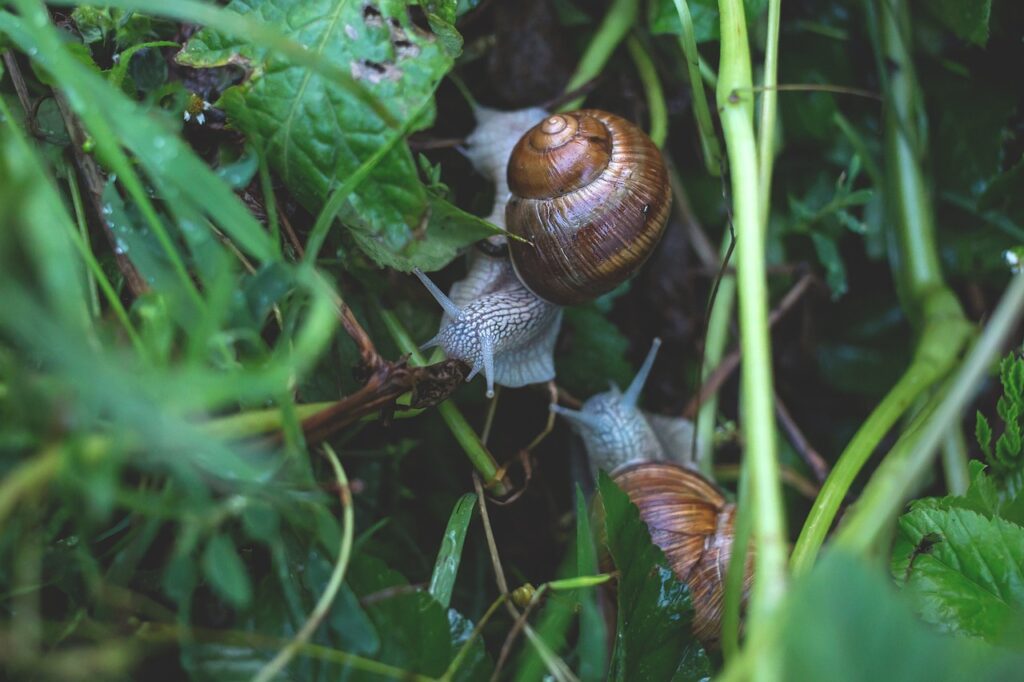
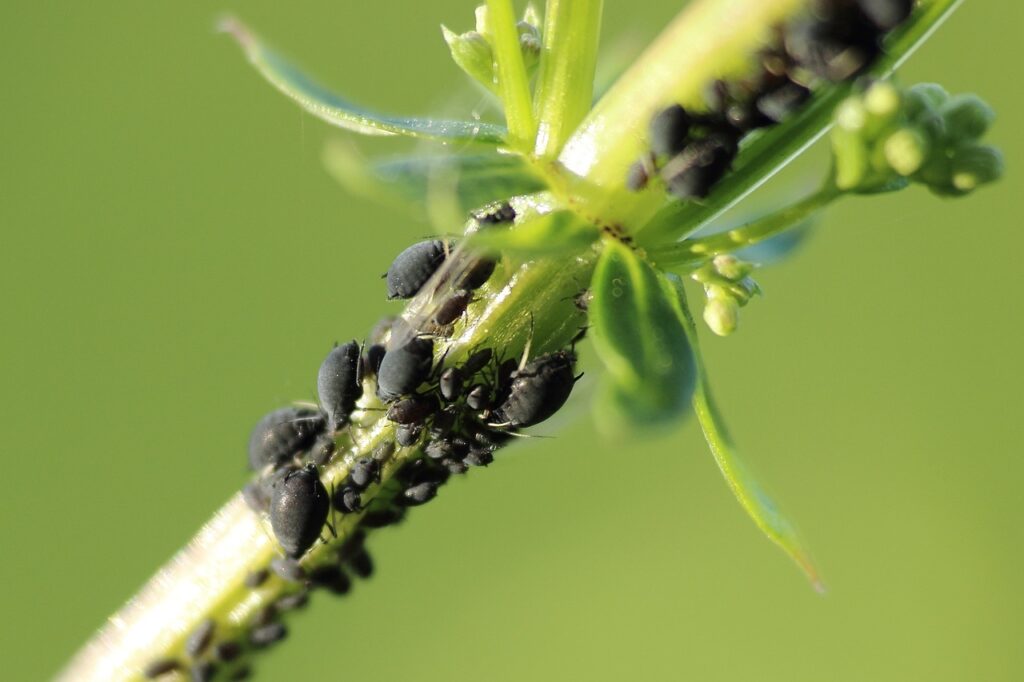
- Aphids: Also known as plant lice, are tiny insects that belong to the Hemiptera order. Despite their diminutive size, aphids can pose significant threats to plants due to their rapid reproduction and feeding habits. These pests primarily target the sap of plants, using specialized mouthparts to pierce plant tissues and extract the sugary fluid.
- Caterpillars: The larval stage of butterflies and moths, are seemingly innocent creatures that can wield substantial harm to plants. Their feeding habits, often voracious and relentless, make them a notable threat to various plant species in gardens and natural environments alike.
- Beetles: A diverse group of insects, can be both fascinating and destructive to plants. While some beetle species play important roles as pollinators and decomposers, others can pose significant threats to plant health and agriculture due to their feeding habits and reproductive capabilities.
- Slugs and Snails: While seemingly innocuous creatures, can wreak havoc on plants and gardens due to their voracious appetite and nocturnal feeding habits. These mollusks, often associated with damp and humid environments, pose significant challenges for gardeners and agricultural systems alike.
Common Rodents
- Mice and Rats: Known for their voracious appetites and ability to consume a wide variety of foods, including plant material. Their gnawing behavior is not limited to just structures; they can also chew on plant stems, leaves, and roots. This feeding habit can lead to visible damage and compromise the overall health of plants.
Common Diseases
- Powdery Mildew: A common fungal disease that can affect a wide variety of plants in your garden. This fungal infection is characterized by the appearance of a powdery white or gray substance on the leaves, stems, and even flowers of plants. While powdery mildew is typically more prevalent in humid and warm conditions, it can occur in various climates and environments.
- Blight: A devastating plant disease, can wreak havoc on crops, gardens, and landscapes. This group of diseases is caused by various pathogens, including bacteria, fungi, and oomycetes, that attack plants’ leaves, stems, and fruits. Blight is notorious for its rapid spread and ability to cause extensive damage, making it a significant concern for agricultural productivity and plant health.
Natural Pest Control Methods
When dealing with garden pests, it’s essential to use methods that are safe for the environment, beneficial insects, and your family. Embracing natural pest control techniques can effectively minimize pest populations without causing harm.
Beneficial Insects
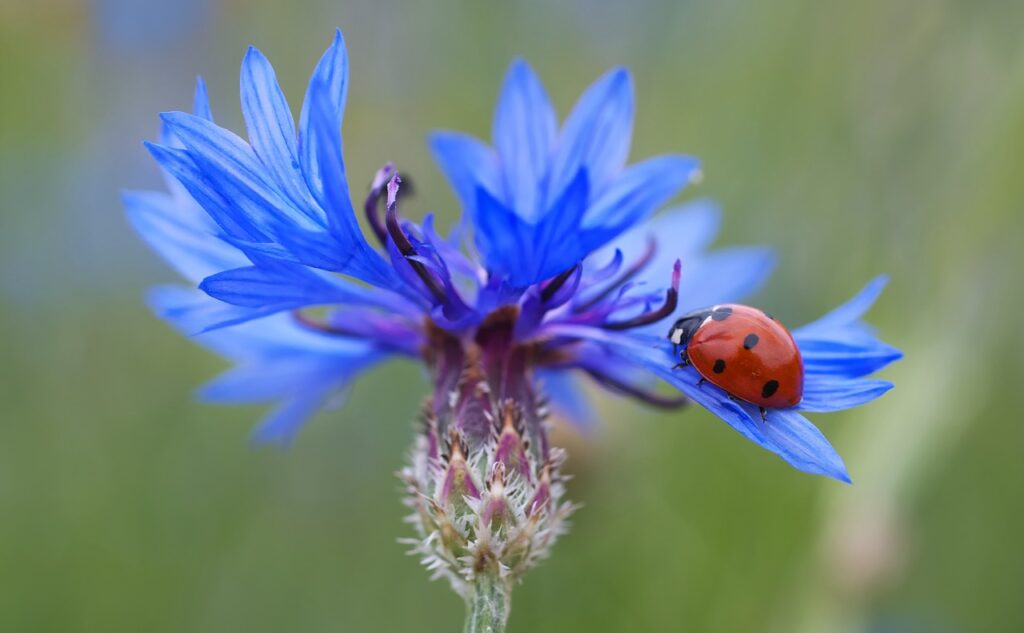
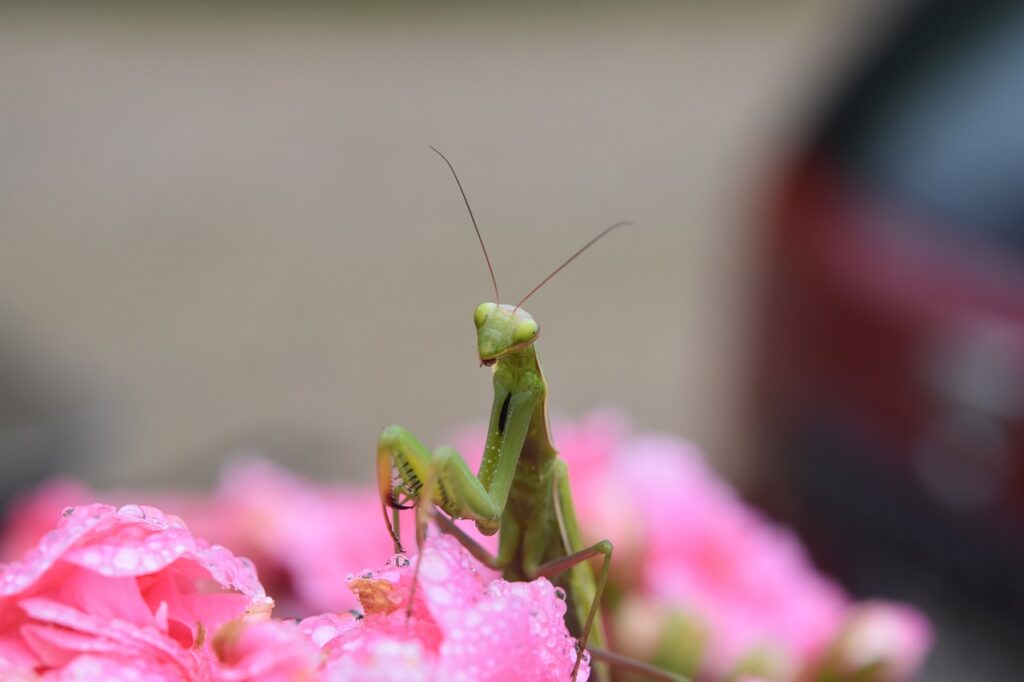
- Ladybugs: These delightful insects, often admired for their graceful appearance, play a crucial role in maintaining garden balance. They sustain themselves by feeding on aphids and other soft-bodied pests, effectively regulating the populations of these harmful insects
- Praying Mantises: Praying mantises, recognized for their predatory prowess, serve as formidable hunters in your garden, preying upon a variety of insects with their insatiable appetite.
- Ground Beetles: Ground beetles, active during the night, serve as vigilant hunters targeting pests like caterpillars and slugs, effectively controlling their populations through their nocturnal pursuits.
Organic Pesticides
- Neem Oil: Neem oil functions as a potent repellent against a multitude of common garden pests, showcasing its effectiveness in safeguarding plants from unwanted invaders.
- Diatomaceous Earth: This powdery substance effectively penetrates the exoskeleton of insects, triggering dehydration and ultimately leading to their demise.
- Garlic and Chili Sprays: Crafted from household ingredients, these homemade sprays possess a potent aroma that effectively deters pests from invading your garden.
Companion Planting
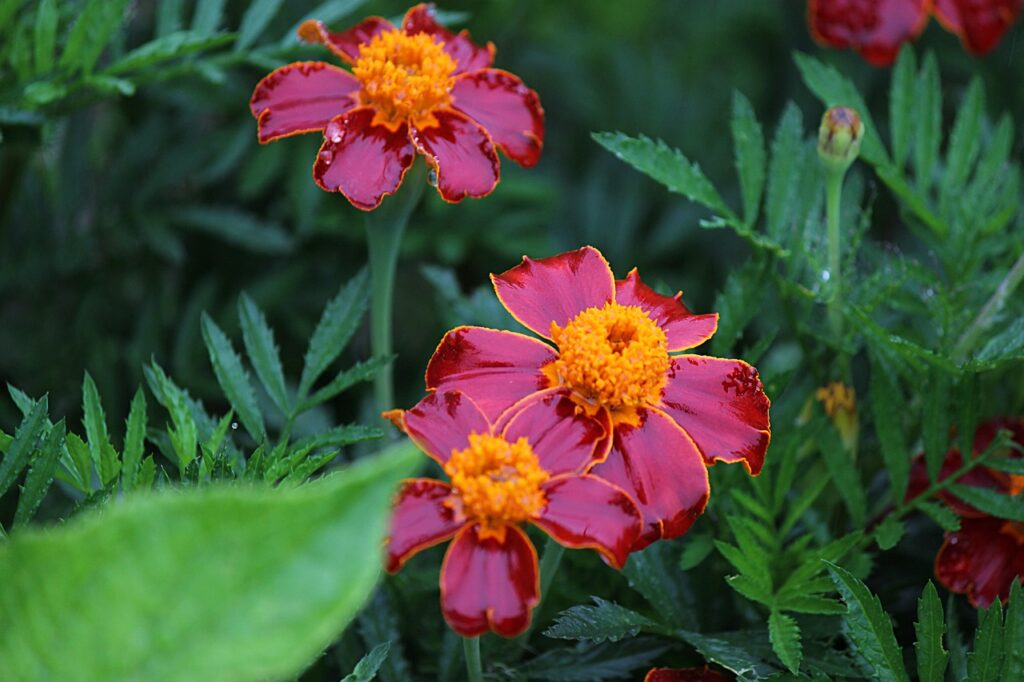
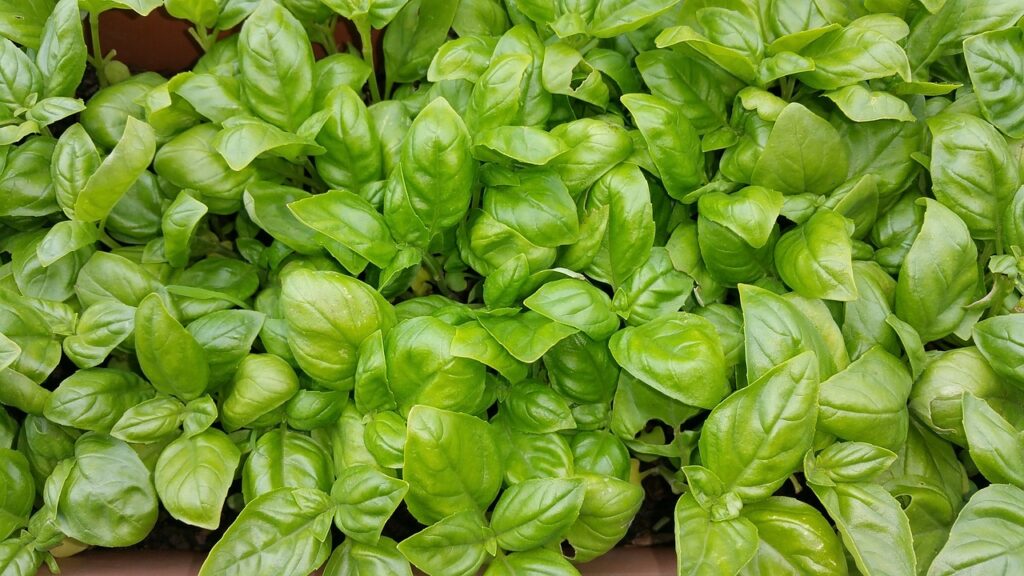
- Marigolds: Planting marigolds can repel aphids and nematodes from attacking your vegetables.
- Basil: Basil not only adds flavor to your dishes but also keeps mosquitoes and flies away.
Crop Rotation
Crop rotation is a strategic agricultural technique that involves the systematic arrangement of different crops in diverse areas during successive growing seasons. This intentional practice serves as a proactive defense against the buildup of pests that are inclined to target specific plant families. By varying the types of crops grown in each location, the likelihood of pests establishing themselves and causing widespread damage is significantly reduced. This method not only contributes to pest management but also promotes soil health, fertility, and sustainable agricultural practices.
Creating a Pest-Resistant Garden
Implementing preventive measures is a crucial strategy for reducing the likelihood of garden pest infestations.
Maintaining a diverse and balanced garden ecosystem can inherently discourage pests from establishing a strong presence.
Preventing Garden Pests
Here are some practices to prevent garden pests from gaining the upper hand:
Garden Maintenance
- Regular Inspections: Regularly inspect your plants for any signs of pest infestation or disease.
- Pruning: Trim away damaged or diseased plant parts to prevent pests from spreading.
Cleanliness and Hygiene
- Remove Debris: Clean up fallen leaves and plant debris that can provide shelter to pests.
- Weed Control: Keep your garden weed-free, as weeds can harbor pests.
Proper Watering
- Avoid Overwatering: Overwatering can create damp conditions that attract pests.
- Water at the Base: Water plants at their base to keep foliage dry and minimize disease risk.
Mulching
Mulching around plants can deter pests, conserve moisture, and suppress weeds, promoting overall plant health.
Conclusion
Garden pests can be a significant challenge for any gardener, but with the right knowledge and approach, it’s possible to manage them effectively without resorting to harmful chemicals. By understanding common garden pests, identifying them correctly, and using natural control methods, you can protect your garden and enjoy a bountiful harvest.
FAQs
- Are organic pesticides safe for pets and children? Organic pesticides are generally safer for pets and children than synthetic chemicals. However, it’s essential to follow application instructions and keep pets and children away from treated areas until the product dries.
- Will companion planting completely eliminate pests? Companion planting can help deter pests, but it may not entirely eliminate them. It is best used in conjunction with other pest control methods for the best results.
- How often should I inspect my garden for pests? Regular inspections are crucial to catch pest infestations early. Aim to inspect your garden at least once a week, especially during peak growing seasons.
- Can I use pesticides and natural control methods together? It’s best to avoid using chemical pesticides alongside natural control methods, as pesticides can harm beneficial insects and disrupt the garden ecosystem.
- Should I remove beneficial insects from my garden? No, beneficial insects play a vital role in pest control. Instead, create a hospitable environment that encourages these helpful insects

